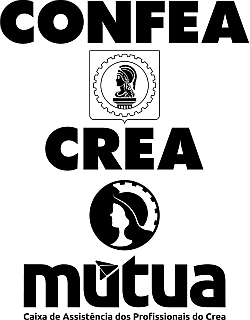Avaliação do ganho na redução de CO2 devido a disponibilidade de um sistema metroviário: Aplicação no Metrô do Rio de Janeiro
DOI:
https://doi.org/10.4237/transportes.v21i2.653Abstract
A emissão de CO2 pelos sistemas metroviários é geralmente muito pequena. Haveria maior emissão, caso seus passageiros não dispusessem do sistema e tivessem que utilizar outros modos de transporte. Adicionalmente, aumentariam os congestionamentos, crescendo o consumo de combustível e produzindo maior emissão. A existência do sistema metroviário evita a emissão que seria produzida por mais veículos em circulação e os consequentes congestionamentos, favorecendo, também, o aumento da densidade populacional em seu entorno, o que contribui para mais viagens a pé ou por bicicleta. Este trabalho visa analisar a influência dos sistemas metroviários na emissão de CO2, sob uma abordagem que considere tanto a emissão produzida quanto a emissão evitada, evidenciando os benefícios de menor emissão de carbono de todo o sistema de trânsito, proporcionados pelo sistema metroviário. Uma metodologia é apresentada e aplicada no Metrô do Rio de Janeiro, quantificando a emissão líquida evitada pelo sistema.
Downloads
References
APTA (2009) Recommended practices for quantifying greenhouse gas emissions from transit. American Public Transportation Association. Disponível em <http://www.apta.com/resources/hottopics/sustainability/Documents/Quantifying-Greenhouse-Gas-Emissions-APTA-Recommended-Practices.pdf>. Acesso em 15/08/12
COPPETEC (2011) Inventário de emissões atmosféricas por veículos automotores do Estado do Rio de Janeiro. Fundação Coordenação de Projetos, Pesquisas e Estudos Tecnológicos. Disponível em <http://download.rj.gov.br/documentos/10112/975111/DLFE-51272.pdf/Inventario_2011.pdf>. Acesso em 20/11/12
EPE (2012) Balanço energético nacional. Empresa de Pesquisa Energética. Disponível em <https://ben.epe.gov.br/downloads/Resultados_Pre_BEN_2012.pdf>. Acesso em 02/08/12
FDT (2008) Conserve by transit: Analysis of the energy consumption and climate change benefits of transit. Florida Department of Transportation. Disponível em <http://planfortransit.com/wp-content//ConservebyTransitFinalReport.pdf>. Acesso em 6/11/12
IEA (2009) Transport, energy and CO2. International Energy Agency. Disponível em <http://www.iea.org/publications/freepublications/publication/transport2009.pdf>. Acesso em 01/08/12
IPCC (2006) Guidelines for National Greenhouse Gas Inventories. Intergovernmental panel on climate change. Disponível em <http://www.ipcc-nggip.iges.or.jp/public/2006gl/vol1.html>. Acesso em 03/05/13
IPEA (2011) Emissões Relativas de Poluentes do Transporte Motorizado de Passageiros nos Grandes Centros Urbanos Brasileiros. Instituto de Pesquisa Econômica Aplicada. Disponível em <http://desafios2.ipea.gov.br/portal/images/stories/PDFs/TDs/td_1606.pdf>. Acesso em 03/05/13
ISO (2007) ISO 14.064:2007 Gases de efeito estufa. International Organization for Standardization.
London Underground (2009) London Underground carbon footprint. Disponível em <http://www.tfl.gov.uk/assets/downloads/corporate/london-underground-carbon-footprint-2008.pdf>. Acesso em 13/08/12
MA (2012) Mistura carburante automotiva (Etanol anidro/Gasolina) – Cronologia. Ministério da Agricultura.
Disponível em <http://www.agricultura.gov.br/arq_editor/file/Desenvolvimento_Sustentavel/Agroenergia/Orientacoes_Tecnicas/01-Mistura%20etanol%20anidro-gasolina-CRONOLOGIA%28Atualiz_02_09_2011%29.pdf>. Acesso em 28/11/12
MetrôRio (2012) Informações fornecidas por funcionários do Metrô do Rio de Janeiro: Anderson Correa, Gerente de Saúde e Meio Ambiente; Rejane Micaelo, Gerente de Inteligência de Mercado; Daniel Habib, Gerente de Operação e Márcia Baptista, Coordenadora de Gestão da Informação e Energia.
Metrô de São Paulo (2011) Inventário de emissões de gases do efeito estufa Metrô 2010. Disponível em <http://www.metro.sp.gov.br/metro/sustentabilidade/pdf/inventario-emissoes-gases.pdf>. Acesso em 10/07/12
MTA (2008) Renewable energy task report. Metropolitan Transport Authority. Disponível em <http://www.mta.info/sustainability/pdf/MTA%20Renewable%20Energy%20Report%2010%2029%2008.pdf>. Acesso em 30/07/12
MTA (2009) Impact of public transportation on GHG in the MTA area. Metropolitan Transport Authority. Disponível em <http://www.mta.info/sustainability/pdf/MTA%20Carbon%20Model%20Report%20&%20Presentation.pdf>. Acesso em 15/07/12
MTA (2012) Sustainability report. Metropolitan Transport Authority. Disponível em <http://www.mta.info/sustainability/pdf/2012Report.pdf>. Acesso em 20/07/12
SMTR (2012) Serviço de transporte de taxis no Rio de Janeiro. Secretaria Municipal de Trânsito do Rio de Janeiro. Disponível em <http://www.taxi-library.org/rio/deoliveira.pdf>. Acesso em 25/11/12
TFL (2006) Surface Advisory Panel. Transport for London. Disponível em <http://www.tfl.gov.uk/assets/downloads/Agenda-and-Papers-SAP-31-05-06.pdf>. Acesso em 10/08/12
Downloads
Published
How to Cite
Issue
Section
License
Authors who submit papers for publication by TRANSPORTES agree to the following terms:
- The authors retain the copyright and grant Transportes the right of first publication of the manuscript, without any financial charge, and waive any other remuneration for its publication by ANPET.
- Upon publication by Transportes, the manuscript is automatically licensed under the Creative Commons License CC BY 4.0 license. This license permits the work to be shared with proper attribution to the authors and its original publication in this journal.
- Authors are authorized to enter into additional separate contracts for the non-exclusive distribution of the version of the manuscript published in this journal (e.g., publishing in an institutional repository or as a book chapter), with recognition of the initial publication in this journal, provided that such a contract does not imply an endorsement of the content of the manuscript or the new medium by ANPET.
- Authors are permitted and encouraged to publish and distribute their work online (e.g., in institutional repositories or on their personal websites) after the editorial process is complete. As Transportes provides open access to all published issues, authors are encouraged to use links to the DOI of their article in these cases.
- Authors guarantee that they have obtained the necessary authorization from their employers for the transfer of rights under this agreement, if these employers hold any copyright over the manuscript. Additionally, authors assume all responsibility for any copyright infringements by these employers, releasing ANPET and Transportes from any responsibility in this regard.
- Authors assume full responsibility for the content of the manuscript, including the necessary and appropriate authorizations for the disclosure of collected data and obtained results, releasing ANPET and Transportes from any responsibility in this regard.










